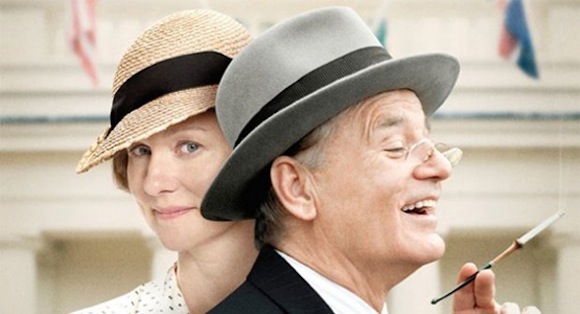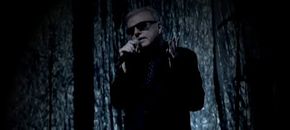Movie Review: Hyde Park on Hudson
Nothing says “Oscar bait” like releasing a historical biopic starring a well-known, well-liked, Oscar-nominated actor in the lead role in the latter months of the year.
It’s not a surefire guarantee, of course, but it’s surer than most. Unfortunately for Bill Murray and his latest bid to obtain an Oscar nod (and a win too), Hyde Park on Hudson, won’t get him (or anyone associated with the film) closer to an Academy Award. For Murray and Hyde Park on Hudson, the opposite holds true. Hyde Park on Hudson will shuttle in and out of movie theaters with minimal, if any, impact on year-end awards lists from the critics groups that help to determine a particular film’s Oscar worthiness.
While Hyde Park on Hudson centers on Franklin Delano Roosevelt (Murray), the 32nd president of the United States elected to four consecutive terms during the Great Depression and the Second World War, he’s not the point-of-view character. That privilege belongs to Margaret “Daisy” Suckley (Laura Linney), FDR’s semi-impoverished fifth or sixth cousin (depending on how you count). Daisy’s physical proximity – she lives near FDR’s upstate New York estate – brings into emotional and, if we’re to believe Hyde Park on Hudson, based, in part, on Suckley’s letters and diaries, sexual intimacy. Apparently, Daisy offered FDR a much-needed respite from the rigors of being a world leader.
Hyde Park on Hudson continually circles back to FDR and Daisy’s relationship, a relationship others in FDR’s inner circle, including Eleanor (Olivia Williams), his wife, and Marguerite “Missy” LeHand (Elizabeth Marvel), his personal secretary, and his mother ((Elizabeth Wilson), explicitly or tacitly acknowledge. In their own way, the women dedicate themselves to FDR’s personal and political success, sacrificing some measure of personal happiness in the process. Those relationships, however, slip into the background with the arrival of King George VI of England (Samuel West), and his wife, Queen Elizabeth (Olivia Colman), for a weekend retreat the king hopes will solidify the Anglo-American alliance before Hitler initiates another European war.
Richard Nelson’s (Roots in Water, Ethan Frome) screenplay, however, offers nothing in the way of insight into the complexities of international politics or personal diplomacy. Hyde Park on Hudson reduces those complexities to a dinner party where the stuttering king attempts to avoid embarrassment and a Sunday picnic featuring that rarest of American delicacies, the hot dog. Nelson and director Roger Michell (Morning Glory, Changing Lanes, Notting Hill) seemingly make the case that Anglo-American relations rested primarily on a cultural signifier and whether the King of England would risk ridicule to show Americans he was, in fact, a good sport.
That lack of insight, not to mention Daisy’s redundant voiceover, and a loose, episodic narrative that mercifully ends by the ninety-minute mark, makes Hyde Park on Hudson a waste of time, energy, and effort for everyone involved, including, specifically Bill Murray, an actor in obvious need of better material, and Laura Linney, a wan, passive, reactive character with an otherwise unengaging story to tell. Actually, the real Daisy didn’t want the story told. She left her letters and diaries behind (under a bed, no less), but never passed them on or left instructions about their use. Given what Nelson and Michell made out of Daisy’s personal life, it was probably for the best if they had been left undiscovered.
Showtimes and Tickets








